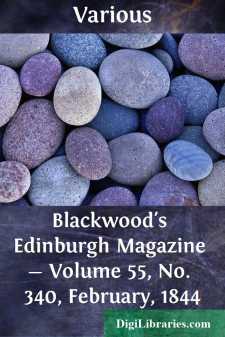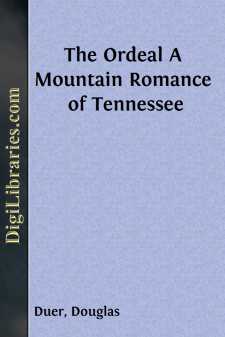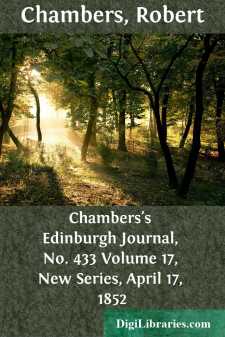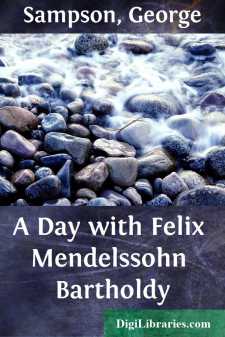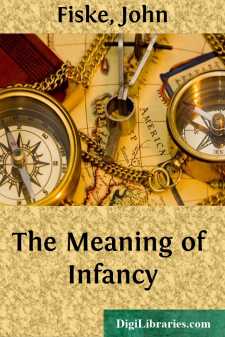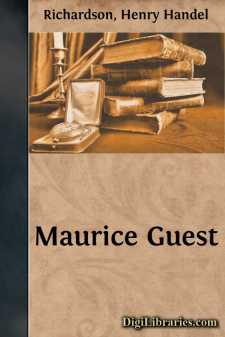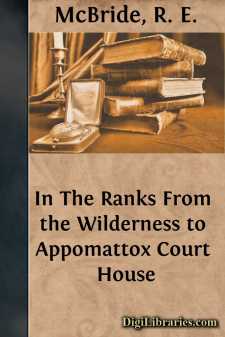Fiction
- Action & Adventure 180
- Biographical 15
- Christian 59
- Classics
- Coming of Age 5
- Contemporary Women 3
- Erotica 8
- Espionage/Intrigue 12
- Fairy Tales, Folklore & Mythology 236
- Family Life 169
- Fantasy 117
- Gay 1
- General 596
- Ghost 32
- Historical 808
- Horror 43
- Humorous 160
- Jewish 25
- Legal 4
- Medical 22
- Mystery & Detective 315
- Political 49
- Psychological 41
- Religious 64
- Romance 159
- Sagas 11
- Science Fiction 730
- Sea Stories 113
- Short Stories (single author) 537
- Sports 10
- Suspense 1
- Technological 8
- Thrillers 2
- Urban Life 31
- Visionary & Metaphysical 1
- War & Military 173
- Westerns 199
Classics Books
Sort by:
by:
Charles Major
CHAPTER I A CASTLE AMONG THE CRAGS Like the Israelites of old, mankind is prone to worship false gods, and persistently sets up the brazen image of a sham hero, as its idol. I should like to write the history of the world, if for no other reason than to assist several well-established heroes down from their pedestals. Great Charlemagne might come to earth's level, his patriarchal, flowing beard...
more...
by:
Various
THE HERETIC. It is now about three centuries since Richard Chancellor, pilot-major of the fleet which, under the command of Sir Hugh Willoughby, and by the advice of Sebastian Cabot, set out to discover a north-east passage to China, carried his ship, the Edward Bonaventura, into Archangel. The rest of the fleet put into a haven on the coast of Lapland, where all their crews, with the gallant...
more...
by:
Douglas Duer
Nowhere could the idea of peace be more serenely, more majestically, expressed. The lofty purple mountains limited the horizon, and in their multitude and imposing symmetry bespoke the vast intentions of beneficent creation. The valley, glooming low, harbored all the shadows. The air was still, the sky as pellucid as crystal, and where a crag projected boldly from the forests, the growths of balsam fir...
more...
by:
Robert Chambers
THE DINGY HOUSE. London is like a large company, where it is necessary for the master or mistress of the house to introduce a great many people to each other. Everybody in that overgrown metropolis has things within a few doors of his residence, which, if they were suddenly described to him, he would hear of with deep interest or extreme astonishment. There is a plain back street near the Haymarket,...
more...
by:
George Sampson
A DAY WITH MENDELSSOHN.uring the year 1840 I visited Leipzig with letters of introduction from Herr Klingemann of the Hanoverian Legation in London. I was a singer, young, enthusiastic, and eager—as some singers unfortunately are not—to be a musician as well. Klingemann had many friends among the famous German composers, because of his personal charm, and because his simple verses had provided them...
more...
by:
John Fiske
I THE MEANING OF INFANCY What is the Meaning of Infancy? What is the meaning of the fact that man is born into the world more helpless than any other creature, and needs for a much longer season than any other living thing the tender care and wise counsel of his elders? It is one of the most familiar of facts that man alone among animals, exhibits a capacity for progress. That man is widely different...
more...
I. One noon in 189-, a young man stood in front of the new Gewandhaus in Leipzig, and watched the neat, grass-laid square, until then white and silent in the sunshine, grow dark with many figures. The public rehearsal of the weekly concert was just over, and, from the half light of the warm-coloured hall, which for more than two hours had held them secluded, some hundreds of people hastened, with...
more...
INLET AND SHORE. Here is a world of changing glow, Where moods roll swiftly far and wide; Waves sadder than a funeral's pride,Or bluer than the harebell's blow! The sunlight makes the black hulls cast A firefly radiance down the deep; The inlet gleams, the long clouds sweep,The sails flit up, the sails drop past. The far sea-line is hushed and still; The nearer sea has life and...
more...
by:
Scott Nearing
CHAPTER ONE EXPERIMENTS IN EGYPT AND EURASIA Thousands of years before the city of Rome was ringed with its six miles of stone wall, other peoples in Asia, Eastern Europe and Africa were building civilizations. New techniques of excavation, identification and preservation, subsidized by an increasingly affluent human society, and developed during the past two centuries of archeological research have...
more...
by:
R. E. McBride
PREFACE. In giving this book to the public we do so under the same plea which justifies those pleasant gatherings called "reunions," where men of the same regiment, corps, or army, meet to extend friendly greetings to each other, to friends, and all comrades in arms. The writer has found it a pleasant task to recall the scenes of fifteen years ago, when, a mere boy in years, he had a part in...
more...



